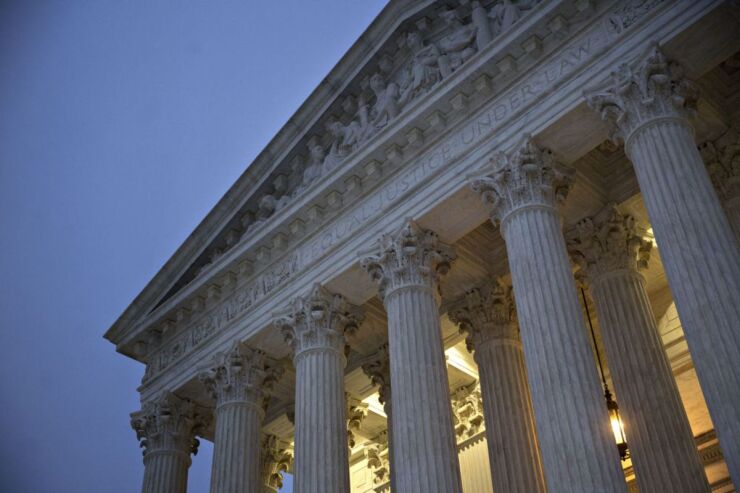Supreme Court will decide third-party recordkeeper issue

The U.S. Supreme Court has agreed to hear Polselli v. Internal Revenue Service, which will clear up a split in circuit court decisions on who the service must give notice to when summoning information records from third-party recordkeepers.
In Poselli, the IRS issued administrative summonses to the banks of Hanna Karcho Poselli, the wife of taxpayer Remo Polselli, and his lawyers, in pursuit of over $2 million in unpaid tax liabilities. The IRS did not notify Hanna or the lawyers of the summonses.
Code Section 7609(c)(2)(D)(1) authorizes the IRS to summon the “person liable for tax,” any officer or employee of such person, or any other person it “may deem proper” to produce records that may be relevant to the tax inquiry.
The section outlines special procedures for summonses when those third parties are recordkeepers, often banks or financial institutions maintaining records of financial transactions of interest to the IRS. The service must generally give notice to any person identified in the summons within three days of issuing it to the third-party recordkeeper, who then has at least 23 days to comply. The IRS may not examine the records prior to that time.

Bloomberg/Bloomberg via Getty Images
At issue in the case is one of the exceptions in the statute to the general notice requirements: The IRS is not required to notify the person or entity identified in a third-party recordkeeper summons when the summons is issued in aid of the collection of an assessment or judgment against the person with respect to whose liability the summons is issued, or the liability any transferee or fiduciary of such a person.
Remo Polselli underpaid his federal taxes for over a decade. While investigating the location of assets to satisfy those liabilities, an IRS revenue officer learned that Polselli used entities to shield his assets from collection. The revenue officer’s investigation revealed that Polselli may have had access to and use of bank accounts held by his wife, Nanna. Based on this information, the officer served a summons on Wells Fargo, seeking account and financial records of Hanna and Dolce Hotel Management LLC concerning Polselli. The officer also leaned that Polselli was a long-time client of law firm Abraham & Rose. Since the law firm’s financial records might reveal the source of Polselli’s funds, bank accounts associated with him, and entities that he owned or controlled,or bank accounts associated with those entities, the officer served the law firm with a summons.
In response, Abraham & Rose sent a letter in which it asserted attorney-client privilege and represented that the firm did not retain any of the documents that the IRS requested. The officer then issued identical summonses against JP MorganChase and Bank of America, seeking financial records of Abraham & Rose and a related law firm. The officer did not notify Hanna or the law firms of the summons. Hanna was alerted by Wells Fargo, and the law firms were notified by JP Morgan Chase and Bank of America of the summons; they petitioned to quash the summons in district court. After a series of procedural motions, the district court, and eventually the Sixth Circuit Circuit, decided in favor of the IRS.
In her decision, Circuit Judge Karen Nelson Moore agreed with the district court that the summonses at issue “fall squarely within the exception listed in Section 7609(c)(2)(D)(1). That section unequivocally provides that the IRS may summon the third-party recordkeeper of any person without notice to that person if an assessment was made or a judgment was entered against a delinquent taxpayer, and the summons was issued ‘in aid of the collection’ of that delinquency. We hold that as long as the IRS demonstrates that these conditions are satisfied, it may issue summons to a third-party recordkeeper without notice to the person or entity identified in the summons.”
There was a separate dissenting opinion.
The decision aligns with both the Seventh Circuit and the Tenth Circuit, while a Ninth Circuit decision holds otherwise, creating a split in the circuits on the issue.


